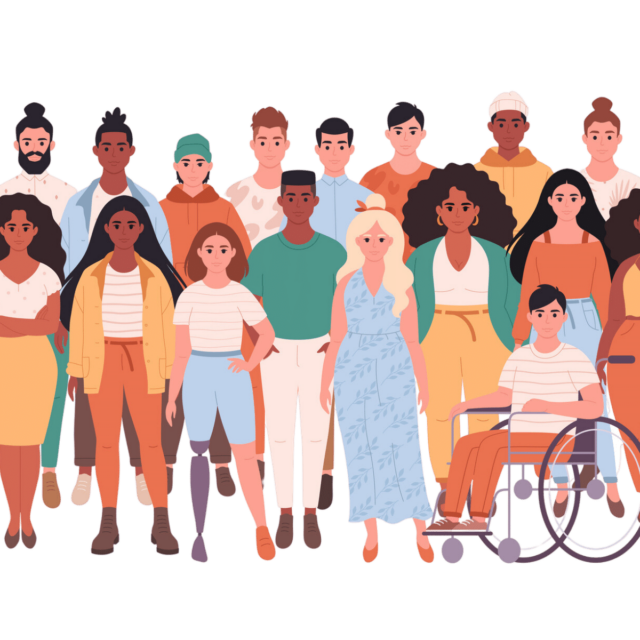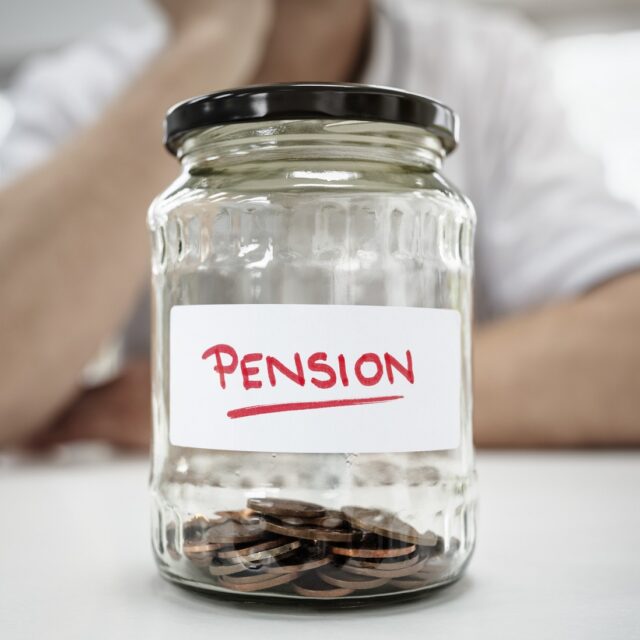Nudging Towards Healthy Eating
What are the impacts of healthy eating, and food insecurity, on the wider economy? How can economic theory be used to change behaviour? Dr Xuxin Mao and Face Donate ’s Alberto De Biasio, in conversation with Professor Stephen Millard, explain some of their recent work in this area, together with some initiatives that are being trialled to give the most deprived access to the same healthy food choices.

Obesity and over-nutrition represent a high societal cost in the UK. Following a healthy eating regime is commonly understood as “more expensive” or “less psychologically rewarding”. How much truth is there in those statements? And what is the impact on the UK economy of obesity, if there is a link between income and healthy eating?
The impact of unhealthy eating habits is detrimental for the UK economy. On the one side, food insecurity has negative consequences on individual life expectancy, productivity and employability, sleep patterns, anxiety, and mental health. On the other side, seemingly counterintuitively, nearly one in three adults in the UK are considered obese, a trend linked to the prevalence of unhealthy eating habits.
Health problems related to being overweight are a major contributor to UK life expectancy being 2.7 years less than the OECD average. Estimates published in the Lancet suggest that, in 2014-2015, UK-wide poor diet-related ill-health cost the NHS £6.1 billion and the wider economy £27 billion per year. Between 2014 and 2020, the number of patients recovering from obesity as primary or secondary cause doubled, with an estimated cost to the NHS of £12 billion and £53 billion to society.
Food insecurity is described by the Parliamentary Office of Science and Technology as the “lack of secure access to sufficient amounts of safe and nutritious food for normal growth and development and an active and healthy life”, whereas obesity denotes “a person who’s very overweight, with a lot of body fat”, usually defined by NHS doctors as people with a Body Mass Index (BMI) above 30.
In simple terms, people become obese when they consume more calories, particularly from processed, fatty and high-sugary foods, than they burn. The problem of obesity is more frequent across the most deprived segment of the population in Western countries.
The literature suggests three determinants for the link between obesity and food insecurity: cost, psychological reward, coping mechanisms.
Healthy food is more expensive
Food costs are an easy item to save on: when families face lower wages and a higher cost of living, expenditure on food in real terms decreases. As low-income families already face expenditure constraints, being able to afford a healthy diet seems harder. On average a UK household spends £4.40 per week on fresh fruit and vegetables. The Eatwell guide highlights that the price of a healthy diet can be up to £42 per week, at least one third (£14) of which should be spent on fruit and vegetables to guarantee a healthy food habit. This is 3 times the actual average household expenditure on those items and is not practicable given the situation of households, particularly those which struggle to make end meets. For instance, to meet the EatWell recommendations, 27% of UK households would have to use one quarter of their disposable income. Evidence provided by the Food Foundation shows that: “the poorest decile of UK households would need to spend 74% of their after-housing disposable income on food to meet the cost of the Eatwell guide” for healthy nutrition.
Healthy food is less psychologically rewarding
There is enough evidence to suggest that the psychological enjoyment arising from a “healthy food” basket is lower than the enjoyment emerging from the consumption of unhealthy, high-sugar, high-fat foods. Processed “hyperpalatable” foods, not only are cheaper and easier to access, but their intake stimulates the reward centres in the brain thus impairing the decision-making process, similar to brains’ drugs response. Evolutionarily, energy-dense food, rich in fat and sugar, is simply tastier than low-energy-density vegetables and fruit. The reason for preferring unhealthy food is thus mainly biochemical.
Eating as a coping mechanism for the high-stress levels of food insecurity
The link between food insecurity and obesity is often connected to the psychological stress related to experiencing food-insecurity and coping mechanisms might play some role in the association between food insecurity, diet, and obesity. Foodbanks, for instance, which are typically the solution food-insecure individuals turn to when in crisis, are not able to provide fresh produce to clients, but offer a range of processed, high-sugary, high-fat produce to their clients.
How much does culture have to do with it, and could we design policy mechanisms to alleviate the underlying costs of obesity?
Whatever the cultural heritage, we can evidence two types of individual food consumers: those with the ability to afford nutritious food and those who cannot (for simplicity we identify a weekly individual disposable income of £200 as a threshold for affordability).
If the demand and supply for nutrition was efficient, there would be no food waste of food supply, valued today at £13.3 billion; this is equivalent to £200 of food being wasted a year for each individual in the UK because we simply produce in excess of what we can consume. There is failure on the demand side as well, as 8% of UK consumers self-report as suffering from food insecurity.
New technologies provide a very powerful tool – not only for their ability to collect data – but also as a means to allocate resources across society with fewer frictions. This could be a way into correcting some of the personal eating patterns. How do you think new technologies could be used in this sense?
As Cadario and Chandon explain, there are several types of nudges to increase healthy food consumption. Nudges can be effective in changing eating behaviours by providing default options, self-commitment, self-incentivisation, rewards and reduction of the frictional costs when looking for the “healthier option”.
For instance, FaceDonate is a tech-for-good start-up using Artificial Intelligence to contribute to the achievement of the UN’s Sustainable Development Goals, focusing on Goal 1 (NO Poverty) and Goal 2 (Zero Hunger).
Over the last six-months, the start-up has been working with the Trussel Trust – the largest food-bank network in the country – to test a solution capable of allocating credit directly to individuals, who can then spend the credit to shop at local stores, giving dignity to, and enhancing choice for, the credit beneficiaries. At the same time, this solution would allow monitoring expenditure of individuals in need via a phone app.
Being able to target needs at the household level after referral would allow the most deprived quartile of the population to be able to access healthy food and to report on their consumption, both in terms of direct credit incentives – which are targeted to specific expenditure – and by engaging at a community level by offering peer support and monitoring. Overall, this might dramatically reduce the cost of matching the supply of fresh healthy food to the most vulnerable segments of the population.
Commitment devices represent a new model of intervention to help people actuate their rational preferences even when they could be tempted to choose short-run rewards through unhealthy food otherwise. Smartphone applications are an increasingly powerful means to deliver health promotion, education and targeted interventions.
To target implementations and reduce their costs we can look at behavioural economic theory, which highlights how targeting cash, or cash-equivalent, transfers have measurable effects on spending patterns (different from what traditional theory implies). In the case of the Winter Fuel Payment, household expenditure on energy was 13.6 times higher than for unlabelled transfers. Apps such as Face Donate have demonstrated similar patterns during pilots and tests: individuals using the system were using it exclusively on merit goods as determined by prior enrolment.
One pilot with 50 households utilising Face Donate to purchase food at local stores, showed people buying mainly fresh healthy produce. By nudging individuals to “buy essentials” with limitation to age-restricted items, and by putting a control mechanism on expenditure by monitoring transaction receipts via the app, we see that individuals prefer fresh produce (meat and vegetables) to the processed food they received from the food bank.
An empirical analysis of over 250 purchases during the period between October 2021 and December 2021 highlights this point further: when individuals in need can shop for themselves, they generally purchase healthier products than the ones provided by the foodbank.
The reduction of food waste and search time together with incentives to increase and facilitate fruit and vegetable consumption has numerous benefits. In this sense, public targeted interventions using AI can nudge individuals into shifting toward fruit and vegetable consumption, particularly in the malnourished segments of the population.











